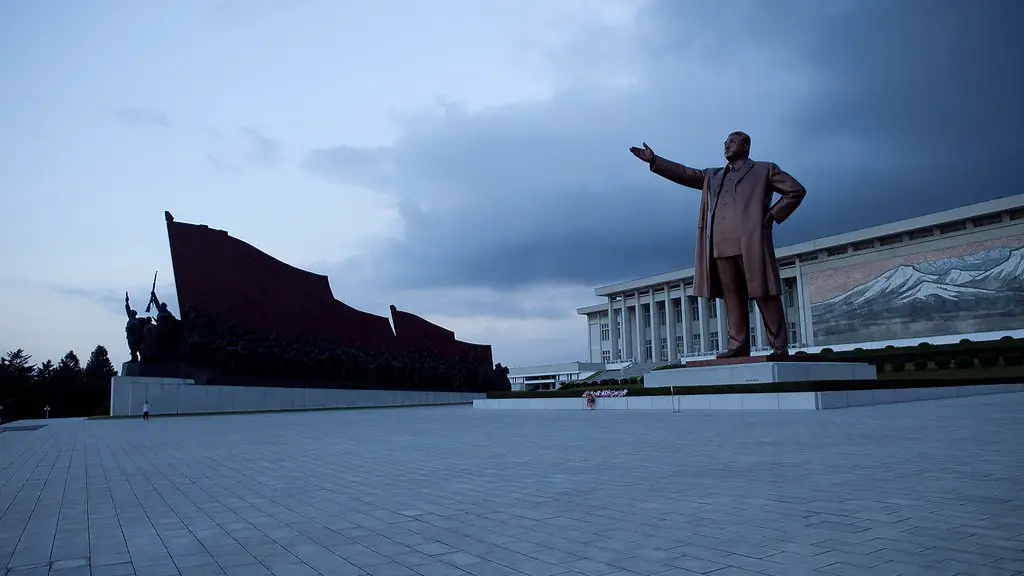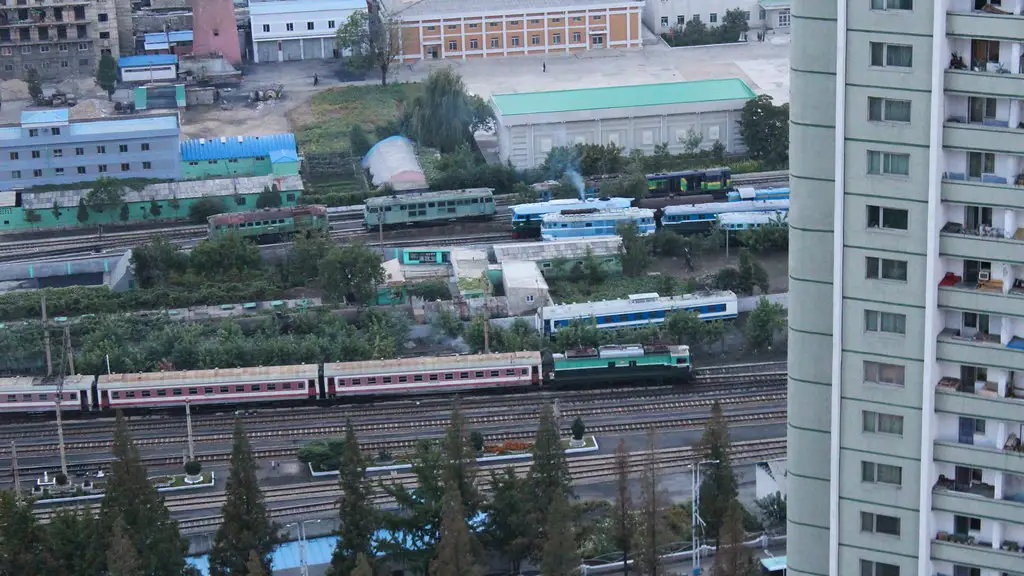Military Power
North Korea is the most militarized country in the world with the fourth largest standing army in the world numbering over a million men and women strong. Pyongyang claims they can mobilize over a million more when needed. The country maintains a significant arsenal of nuclear, biological, and chemical weapons as well as several thousand long-range conventional rockets and other systems. North Korea has a “no first-use” policy towards the use of weapons of mass destruction and its nuclear deterrence is based on the threat of pre-emptive nuclear strikes.
North Korea also has a comprehensive network of underground tunnels, with an estimated 16-20 thousand dug underneath the Demilitarized Zone (DMZ) between North and South Korea. These tunnels were built to preserve the North Korean forces in an event of war. This is concerning as their presence and their potential use remains unknown.
North Korea has also invested in cyber warfare capabilities such as cyber espionage and cyber-attacks. In 2020, the country was accused of being behind sophisticated cyber-attacks on banks and media outlets around the world. Cyber attacks could be used to disrupt communication, steal information and even damage critical infrastructure.
Strategic and Technical Weaknesses
However, North Korea has some key strategic and technical weaknesses as well. Their conventional military hardware is generally outdated and inefficient. North Korea lost most international military support after the fall of the Soviet Union, and has had difficulty in modernizing and maintaining its hardware. In addition, North Korean troops are often poorly trained and lack experience fighting in large scale engagements and use of modern weaponry which would put them at a major disadvantage in combat.
Furthermore, Pyongyang’s military strategy and tactics are outdated. North Korea relies heavily on surprise attacks and a blitzkrieg-style of fighting, which may be effective against lesser trained, motivated and equipped forces such as South Koreans. Its tactics may not be effective against a more experienced and well-equipped military force.
International Factors
North Korea’s foreign policy has been a major factor in the political and diplomatic environment over the last decades. Pyongyang has been fairly isolated from other countries and organizations due to its human rights abuse, nuclear ambitions and belligerent attitude. This has resulted in international sanctions and pressure from United Nations Security Council members.
The international community has also been critical of North Korea’s aggressive military operations against South Korea such as the 2010 shelling of the island of Yeonpyeong or the sinking of the South Korean warship, Cheonan. Moreover, South Korea and the United States seem to be unwilling to accept any compromises from Pyongyang in return for negotiations.
Political and Diplomatic Challenges
The escalating tensions between the U.S., South Korea and North Korea could lead to a conflict of great scale. The militarized border between the two countries is the most heavily defended border in the world and military operations in the area could have grave consequences on the entire region.
The main challenge in such a conflict would be to limit the number of casualties and destruction while still maintaining an advantageous military position. A challenge is also to maintain international backing and to prevent sympathetic parties such as China and Russia from joining in.
Humanitarian Crisis
Should a war between North and South Korea break out, there is likely to be a significant humanitarian crisis as well. North Koreans would be the most affected by such a conflict as the country already suffers from severe human rights abuses and poverty. North Korea’s economy would be heavily affected and there would be a mass exodus of refugees from North to South Korea.
Furthermore, North Korea is already heavily dependent on foreign aid from China and other countries. A war could mean forces will be redirected from other sectors to military ones, further hurting the already fragile economy.
Economic Implications
The economic implications of a war between North and South Korea could be significant. The heavily militarized South Korean-North Korean border is a major waterway for international shipping. Any disruption in this area could cause major disruptions in international trade and commerce.
The conflict could have a significant economic impact on the entire region, with South Korea and Japan being the most affected due to their close proximity and economic ties to North Korea.
How to Handle the Conflict
The conflict between North and South Korea will not be solved with a direct military confrontation. A more diplomatic solution is needed to ease tensions and ultimately bring peace to the region.
Experts suggest that denuclearization of the Korean Peninsula should be a priority for all parties. This includes a peaceful resolution to the nuclear and missile programs in North Korea.
The international community should also focus on providing humanitarian and economic aid to North Korea. This may include direct financial aid as well as free and transparent trade with the country to support its economy.
Furthermore, the international community should strengthen its diplomatic efforts towards North Korea and work together to de-escalate tensions.
Psychological Impact
The psychological impact of a conflict between North and South Korea could be immense. A war may cause trauma to both the countries’ populations and have a lasting psychological impact on those living in the region.
The media could also play a major role in stoking fear and increasing tensions between the two countries. This could lead to further divisions between both sides and ultimately, lead to an ever-escalating spiral of violence and destruction.
A war between North and South Korea could also present a major security threat to the region, as it could potentially bring in other countries and organizations to join the conflict.
Geopolitical Factors
Geopolitical factors may also affect the outcome of the conflict. China holds a strong political and economic influence in North Korea and will likely be a key factor in the negotiations between the two countries.
The United States has also recently shown presence by sending forces to take part in military exercises, although this has been largely seen as a form of pressure and deterrence rather than an attempt at military confrontation.
Other countries in the region, such as Japan, have also increased their military presence in the area. In addition, the United Nations Security Council has recently initiated economic sanctions and diplomatic pressure against North Korea to try and deescalate the situation.
International Pressure Group
International pressure groups have also taken action towards North Korea in an attempt to bring about a peaceful resolution. They have used diplomatic tactics such as sanctions and embargoes, public protests and campaigns for greater international attention on the situation.
These efforts have been successful in raising the international profile of the crisis and in co-ordinating international action against North Korea.
The international community should continue to support diplomatic efforts to find a peaceful resolution to the crisis in North Korea.
Conclusion
A war between North and South Korea is something to be avoided at all costs. Whilst North Korea possesses a significant military force, it has many weaknesses which could give South Korea an advantage should a conflict take place.
International diplomatic efforts are the most effective way to lower tensions and avoid a war, and the international community should continue to work together towards a peaceful resolution.


